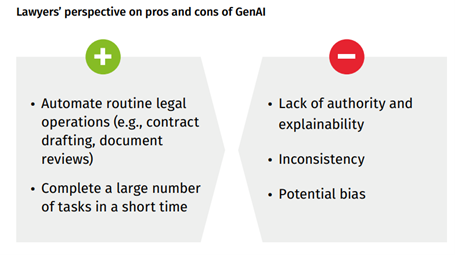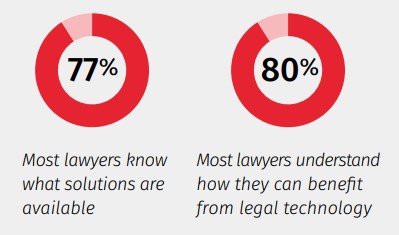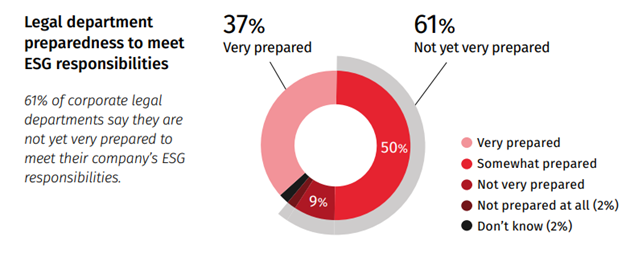Key considerations for becoming a future ready legal department
As we look towards the future, it is crucial to assess the readiness of your legal department for the challenges and opportunities that the rest of 2024 will bring.
According to industry experts from Europe and the U.S., the transformation of the legal sector is imminent, but the readiness for this change varies significantly across the industry.
The first aspect to consider is the technological transformation in the legal industry.
As noted by Richard Tromans, a legal tech consultant, the industry has yet to witness a true tech transformation. This is largely because many businesses, despite adopting new software tools, have still to tap their full potential due to insufficient staff training and business practices that hinder industry-wide transformation.
Therefore, it is essential to align your business model with technology that can significantly increase the production and delivery speed of billable work.
The legal industry's digitisation rate is another factor to consider.
Valerie Keilhau, a legal tech expert, points out that the legal industry lags behind other sectors in terms of digitisation. The main reason for this is the negative and biased attitude of lawyers towards technological progress.
To future-proof your legal department, it is fundamental to foster a positive attitude towards technology and its potential benefits.
The type of technology that is critical to legal professionals' success also plays a significant role in preparing for the future.
According to Robert Ambrogi, a legal tech journalist, the most crucial technologies are those that support essential tasks, fit within daily workflows, automate mundane tasks, and reduce the need to jump between applications. These include practice management platforms, legal research databases, time-and-billing tools, document automation technologies, and document management platforms.
AI is another type of technology that will continue to significantly impact the legal industry.
Valerie Keilhau predicts that AI, particularly large language models, will be increasingly integrated into software for legal departments.
Therefore, embracing AI and integrating it into your legal department's operations is a key step towards future-proofing.
The increasing importance of ESG factors is another trend that will impact the legal industry.
Iris Wuisman, a legal tech expert, advises considering the type of clients your department serves, how it cares for its workforce, and its impact on the environment.
When developing or choosing technological tools, legal professionals should consider their environmental footprint.
In terms of talent acquisition and retention, Iris Wuisman suggests that it’s important to understand the varying levels of enthusiasm, capability, and skill among legal talents in leveraging technology.
Supporting and challenging talent based on their individual characteristics will enable them to operate within their strengths.
Lastly, the shift towards a hybrid work environment poses a risk to younger professionals' career paths and opportunities.
Janet LeVee suggests that robust mentorship can mitigate this risk. It is essential to incentivise experienced lawyers to mentor and train new and mid-level lawyers, whether in person or via digital experience.
Conclusion
The fifth-anniversary edition of the Wolters Kluwer Future Ready Lawyer Survey finds the legal industry amid unprecedented change, propelled by social and technological trends. Despite the challenges, the legal profession has shown remarkable resilience and adaptability.
This 2024 roadmap for corporate legal departments is marked by both challenges and opportunities. As the legal landscape continues to evolve, the ability to adapt and remain resilient will be key.
In this journey towards becoming future-ready, Legisway can be a game-changer as it offers a comprehensive suite of tools that can help legal departments optimise their processes, manage risk, and enhance compliance.
Its robust features can streamline tasks, automate workflows, and provide valuable insights, thereby overcoming the challenges of an evolving legal landscape.
By embracing new technologies like Legisway, meeting escalating client expectations, and fostering a diverse and inclusive environment, legal departments can not only survive but thrive in this rapidly changing environment.










